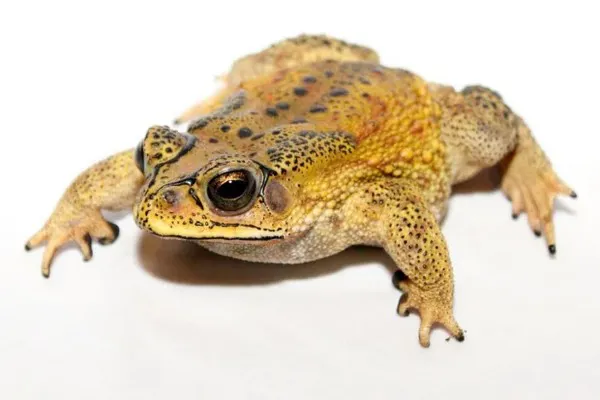Agriculture Victoria has urged Melburnians to report suspected exotic pest animal sightings following the discovery of an Asian black-spined toad (Duttaphrynus melanostictus) on Boxing Day.
Agriculture Victoria Biosecurity Manager Adam Kay said a resident noticed the toad during an afternoon walk along the Djerring Trail near Huntingdale train station. ‘The resident collected the toad in a cup and took it home, then reported the discovery via our hotline as a suspected cane toad,’ Mr Kay said. ‘We have since confirmed the species as an Asian black-spined toad.’

The toad was in poor condition when discovered and has since died and been appropriately disposed of to minimise biosecurity risks.
This is the 18th Asian black-spined toad discovery reported to Agriculture Victoria since 1999.
‘These toads are widespread and abundant throughout south-east Asia, including Bali, Thailand, and Papua New Guinea,’ Mr Kay said.
‘They do not naturally occur in the wild within Australia, however, the species is frequently intercepted at Australian borders in shipping containers and in personal luggage as stowaways.
‘They are poisonous, and compete with native species for food and habitat, with the potential to cause environmental impacts like those of the cane toad in Queensland.’
Mr Kay said that Agriculture Victoria is now focused on determining how the animal came to be in Melbourne’s south-east.
‘This is a serious biosecurity threat, and we are seeking help from Huntingdale area residents and business owners who may have information on how this toad came to be in the community.’
Asian black-spined toads can breed up to twice each year, with females producing up to 40,000 eggs per cycle. They produce a poisonous milky substance much like cane toads and can cause serious illness or death in native species and domestic pets which may attempt to prey on them.
The milky toxin has a pungent odour and may cause itching in the nose and eyes when handled by humans. The consumption of Asian black-spined toad skin or eggs can cause serious illness or even death. Asian black-spined toads are classified as prohibited pest animals under the Victorian Catchment and Land Protection Act 1994.
For more information:
Maida Anderson
Agriculture Victoria
Tel.: +61 0431 626 178
